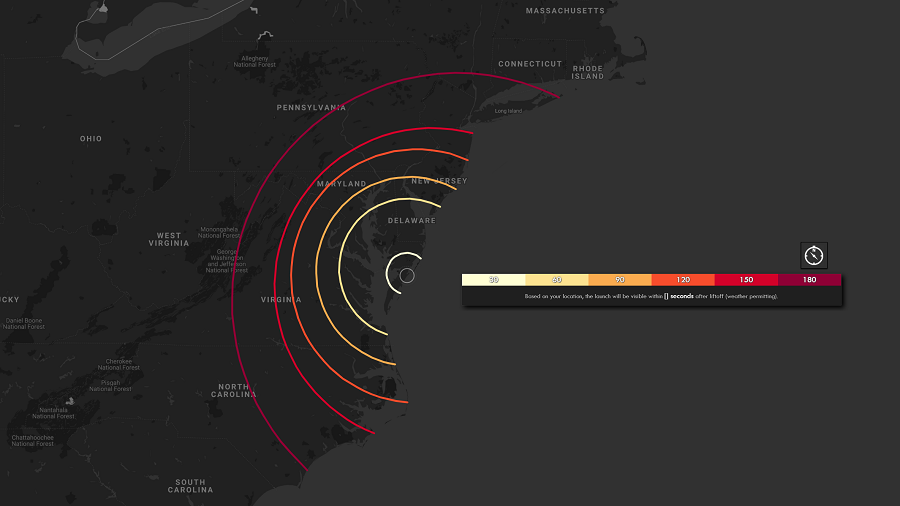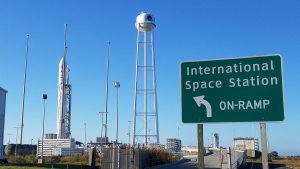
NASA is planning to send fresh cargo and new scientific experiments to the International Space Station (ISS) from a rocket to be launched from the Virginia coast next month; the late afternoon launch should be visible across a large part of the Mid Atlantic from New York City to the Outer Banks of North Carolina. NASA commercial cargo provider Northrop Grumman is scheduled to launch its eleventh Cygnus mission to the ISS at 4:46pm ET Wednesday, April 17 from NASA’s Wallops Flight Facility on Wallops Island, Virginia. Northrop Grumman will be using its Antares rocket to send cargo craft Cygnus to space; the mission is known as NG-11, short for Northrop Grumman’s 11th such mission.

In this next launch, new technologies are being showcased. First, Northrop Grumman will use a new late load capability. Previously, all cargo had to be loaded about four days prior to launch.; this new capability will allow time-sensitive science experiments to be loaded into Cygnus just 24 hours before liftoff. This mission also is the inaugural launch of the Virginia Space ThinSat Program. NG-11 will release 63 ThinSats and the Student Aerothermal Spectrometer Satellite of Illinois and Indiana CubeSat, a collaborative effort between the University of Illinois Urbana-Champaign and Purdue University, from the second stage of Antares into extreme low Earth orbit. Students will collect and analyze data transmitted from their satellite for approximately five days before the ThinSat or CubeSat de-orbits and burns up in the atmosphere.
Virginia Space and Twiggs Space Lab, LLC partnered to create the Virginia Space ThinSats Program to enable participating students to design, build and launch a picosatellite within approximately one year. The Virginia Space ThinSat Program includes approximately 70 schools from nine states, with a focus on students in the Commonwealth of Virginia.
Each resupply mission to the station delivers scientific investigations in the areas of biology and biotechnology, Earth and space science, physical sciences, and technology development and demonstrations. Cargo resupply from U.S. companies ensures a national capability to deliver critical science research to the space station, significantly increasing NASA’s ability to conduct new investigations at the only laboratory in space.